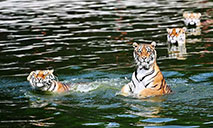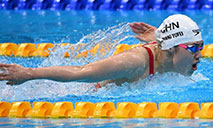Lower albedo drives glacier melting on Qinghai-Tibet Plateau: study
BEIJING, Aug. 2 (Xinhua) -- Chinese researchers have found that albedo reduction was an important driver of glacier melting on the Qinghai-Tibet Plateau and its surrounding areas.
The Qinghai-Tibet Plateau, known as "the water tower of Asia," houses abundant glaciers vital to the regional water cycle and water resources in downstream areas.
The glaciers have been shrinking in recent years mostly due to global warming, which are also profoundly modulated by surface albedos, according to a research article recently published in the journal Earth-Science Reviews.
The researchers from the Chinese Academy of Sciences and Lanzhou University summarized the current status of the glaciers around the Qinghai-Tibet Plateau and its surrounding region.
Based on glacier surface snow albedo data, they investigated the potential impact of glacier surface snow albedo changes on glacier melting between 2001 and 2018. The results showed that glacier shrinkage was pronounced over the Himalayas and southeast of the plateau.
The regional distribution of the average albedos on the glacier surface during summer exhibited similar patterns to those of glacier retreat and mass balance changes, indicating a significant relationship between the annual glacier mass balance and glacier surface albedos.
It can be concluded that albedo reduction, together with rising temperatures and changing precipitation, was a significant driver of glacier melting on the Qinghai-Tibet Plateau, according to the study.
Based on glacier surface summer albedos and snowmelt model, the researchers estimated that the effect of surface albedo reduction can drive about 30 to 60 percent of glacier melting.
Due to the strong absorption of light, black carbon in snow substantially contributed to albedo reduction, which enhanced glacier melting on the plateau in summer by approximately 15 percent, said the research.
Photos
Related Stories
Copyright © 2021 People's Daily Online. All Rights Reserved.










